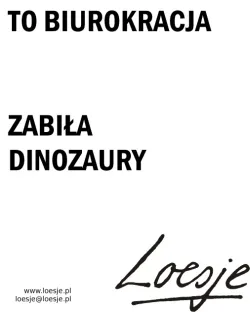Thankfully, the reality is that the system is improving in all areas. Due to modern technology both my homeland and my adopted land have made real progress in the speed of their actions. Computers have streamlined the average bureaucrats daily routine and the hours of filing that was originally proportioned to a civil servants day has been slashed thanks to the memory card. Instead of waiting an hour for your credentials to be found and sought through we are pinpointed in a matter of seconds and our valuable information read at the same speed. This has benefited my life dramatically. My first experience of the Polish tax office was as scary as it was time-consuming. Endless corridors in a communist block with every door looking exactly the same made me feel like Jack Nicolson’s son in The Shining. Out of every room came a stern faced 50 year old women who looked as if the next person she would see she would stab to death with her letter opener. Now I visit my tax office in Warsaw it is incredibly modern, with nifty queuing systems and the stern faced mature ladies replaced by smiley faced mature ladies!
The obvious reasons for Poland’s amount of bureaucracy can be easily blamed on its communist past. When people recount their stories of this era I am shocked by tales of waiting five hours , unhappy staff who were as surly as they were unhelpful and endless weeks of waiting for documents to be processed. In my own experience these attitudes can sometimes still exist. Ask a foreigner in Warsaw about their experience in the department of aliens (as I call it) and expect a barrage of swear words to be launched in your direction. In the UK we are just as strict, if not more so, however, there won’t be as many forms and they’ll probably be smiled at constantly as they are told to go back to their country. It wouldn’t surprise me if they even waved them off at the airport. A great example of differences between our fine nations is the E111 card. A European wide health insurance card so if were sick in someone elses country we wont be left at the side of the road rolling around in agony. When I applied for mine in England I opened the Government website, typed in E111 card in their search field and filled out one form. After I had pressed enter a message came up saying that it will be delivered to my home in three working days, which it did. My wife getting her E111 card in Poland had an altogether different experience. A day of trials and tribulations as she was sent from one office to the next, visiting all parts of Warsaw and finally queuing for four hours, filling out five forms and then eventually waiting two weeks to receive her card.
This madness is not just restricted to the public sector. One day we decided to apply for a mortgage and our levels of patience were truly tested. Over a period of two months I visited my tax office five times, ZUS three times, KRS four times and the department of aliens twice. Not to mention trips to the accountants and the regular visits of our mortgage advisor who must have the patience of a saint. In that same period my younger brother and his girlfriend went to the bank in England, handed over five forms and were granted their mortgage all in the space of a week. These adventures were not all at a loss though as firstly, we achieved our aim of getting a mortgage and secondly, after this experience I truly feel more Polish. For now I can enter into a discussion about bureaucracy with a fellow Warsaw citizen with my head held high in the knowledge that I’ve been through the same things and felt the same emotions of ecstasy and agony.
The reality is that there are important rules to follow in both societies when encountering bureaucracy in both countries, which I will try to simplify into my own survival guide.
Firstly, Warsaw:
- Always take every document that you can possibly think of. Do not leave anything for chance. Even documents that don’t relate to what you are doing are important. You WILL need documents to prove other documents and they MUST be signed on every single page at least three times (not in red pen!).
- Learn the system. Every department has a completely different system that is just as complicated as the next office. Learning the system is impossible at first but ask anybody around you who looks like they know what they are doing, they won’t know but inside the office there is solidarity.
- Know that the bureaucrat’s mindset is always adjusted to 'NO!', therefore you must prove that they can say yes. There are no exceptions and common sense does not exist. If they say go across the entire city, you go, make them tired of you and then they will finally relent.
Secondly, London:
- Be polite at all times. If you do not say please fifty times or thank you fifty times you will be condemning yourself to a long wait. English people only help those who are nice.
- Find it online. Maybe everything can be dealt without the need for travel. Do not bother going there if the form is online. English offices are equally confusing and frustrating but using the computer is your get out clause.
- Take money, and lots of it. Everything comes at a price, London is expensive and our government has no money, you do the maths.
Text by: Christopher Moore







































